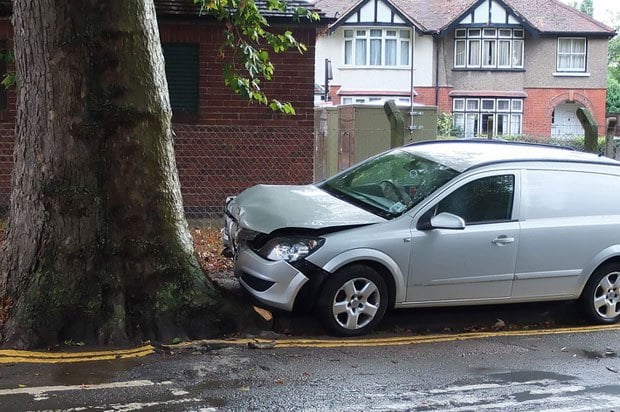Travel insurance
Make sure you cover your tracks before you set off and find out what your travel insurance covers you for.

"Erm...yes...I'd like to make a claim."
One in eight people don’t know what to expect in a standard travel insurance policy according to MoneyExpert.com. If you don’t know what you’re covered for it could mean losing out when you need to claim, or not being able to claim at all.
You need travel insurance to cover you for:
- Illness/injury;
- Accident;
- Theft of money/luggage/documents.
Also some airlines will refuse to let you fly unless you have adequate travel insurance.
How much should it cover?
You don’t always need high cover, but you must have adequate protection for your needs. Basic cover should sort you out for loss of passports and basic medical attention, whereas extensive cover will stretch to £5 million of medical costs. If you’re going to the States you probably want maximum cover, however for anywhere else ask for advice relevant to the country you’re visiting. Booking holidays by credit card often gives you added travel accident insurance, although this is not enough on its own.
A good policy should cover you for:
- The whole time that you are away, whether that is a day or a year;
- The medical and health cover is very important. It should be for a minimum of £1 million for Europe and £2 million worldwide. It must include cover for emergency medical treatment, hospitalisation and repatriation (sending you home);
- Any activities and sports you might do. Some activities, such as jet skiing, are excluded from most policies. Many insurers will extend cover, if requested, otherwise shop around for a specialist policy;
- Personal liability for injury or damage to others and their property;
- Cancellation if you have to abandon your trip. Cancellation cover should start as soon as you book your trip;
- 24-hour emergency service and assistance if things go wrong the assistance company will help you to sort everything out;
- Possessions cover, including money and documents to specified limits.
Your policy may also cover:
- Personal accident – money paid on death or permanent disability;
- Legal expenses – to help you pursue compensation for damages following personal injury.
Tips for choosing the right insurance
When embarking on the journey of selecting the right insurance, several key considerations can guide individuals towards a well-informed decision. Firstly, assessing one’s specific needs and lifestyle is crucial; whether it’s health, auto, or home insurance, tailoring the coverage to match individual circumstances is paramount. Comparing quotes from different providers enables a comprehensive understanding of available options and associated costs. Additionally, evaluating the reputation and customer service track record of insurance companies contributes to a more reliable choice. For an in-depth exploration of the best insurance companies and their offerings, individuals can visit https://www.insuranceranked.com. This resource provides nuanced reviews and insights, aiding prospective policyholders in navigating the complexities of insurance selection with confidence and clarity.
Shop around: Costs vary widely, so research the market to find a good price and the right product, rather than opting to travel without cover. Remember: a cheaper policy may have less cover. If you make several trips each year, consider taking out annual multi-trip insurance to save time, money and effort.
Check the small print: Check conditions and exclusions, and if you are in doubt, ask your insurer. Most policies will not cover drink-related or drug-related incidents. You must take reasonable care of your possessions or your policy will not cover you. Also declare anything that you think might affect the cover, such as current or past medical conditions. If you know that a close relative is ill and this may mean you have to cancel or curtail your trip, tell your insurer. Otherwise your insurance may be invalid.
Around-the-clock service: Take out a policy with a 24-hour emergency service. Serious accidents or illness will be managed by the assistance company who will provide you with help and advice, pay bills and make any necessary arrangements, such as repatriation. Remember to take your policy and the 24-hour emergency telephone number with you.
Get your EHIC form before travelling in Europe
The European health service card (EHIC) entitles you to free or reduced medical care while travelling in the EU, Iceland or Norway. To apply you need to complete an EHIC form that you can pick up at any post office. Send your completed form in the envelope provided and you should receive your free card within 21 days. Alternatively you can apply by phone or online. This is not an alternative to travel insurance, for example it will not cover you for all the medical costs that you can incur or for repatriation. You will still need appropriate insurance to ensure you are fully covered for all eventualities.
ABTA and ATOL
Make sure that whoever you book through is with ABTA (Association of British Travel Agents) or ATOL (Air Travel Organiser’s Licensing) bonded. If an ABTA member fails financially while you are on holiday, you can continue your holiday as planned. If your holiday has not already started, you will receive a refund or alternative arrangements will be made.
Most firms who sell air travel in the UK are required by law to hold a licence called an ‘ATOL’ (Air Travel Organiser’s Licensing) which also protects you from losing money or being stranded abroad if an operator goes bust.
Finally:
- Take your policy and the 24-hour emergency phone number with you;
- Make sure you know what to do in the event of a problem;
- Some insurance companies insist that you call their assistance company as soon as possible after a problem arises;
- If anything does happen make sure you keep as much paperwork as possible (tickets, receipts, medical bills, police reports etc) to help prove that what you’re claiming for actually happened.
Check the Foreign & Commonwealth Office (FCO) travel advice online, or contact the FCO on +44 (0)20 7008 0232/0233.
Photo of skier by Shutterstock
Next Steps
- Chat about this subject on our Discussion Boards.
By
Updated on 29-Sep-2015
No featured article










